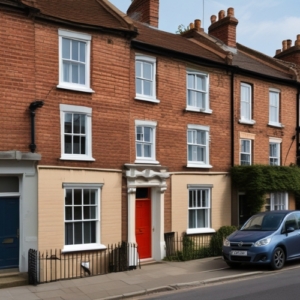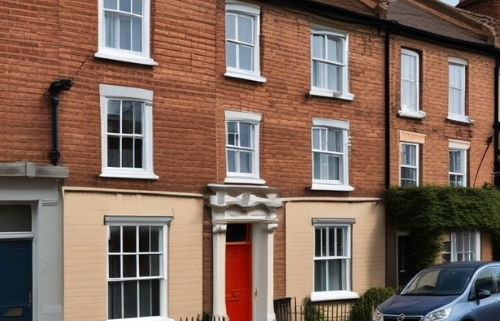What to Look for When Buying a House

Choosing the right house in the UK is a significant decision that involves careful consideration of various factors ranging from financial aspects to personal preferences and long-term plans. The process can be both exciting and daunting, especially given the diversity of housing options available across different regions. This article explores the key considerations and steps involved in making an informed decision when selecting a house in the UK.
This choice involves a blend of practicality and emotion. It begins with defining your needs and desires clearly: location, size, layout, and amenities. Practical considerations such as budget, mortgage rates, and future resale value are crucial. Emotional factors like the feeling the home evokes, its neighbourhood vibe, and potential for personalization also play a significant role. Researching extensively, visiting properties, and consulting with real estate professionals helps refine choices. Ultimately, the right house aligns not just with your current lifestyle and financial situation, but also with your long-term aspirations and sense of comfort and belonging.
Understanding Your Needs and Preferences
The first step in choosing the right house is to clearly define your needs and preferences. This involves considering factors such as:
- Location: Determine the preferred location based on proximity to work, schools, amenities, and transportation links. Urban areas like London offer bustling city life with convenient access to job opportunities and cultural attractions, while rural areas provide tranquility and larger properties.
- Type of Property: Decide whether you prefer a detached house, semi-detached, terraced, or apartment. Each type has its advantages; for example, apartments often offer lower maintenance and greater security, while houses provide more space and privacy.
- Budget: Establish a realistic budget that includes not just the purchase price but also associated costs such as stamp duty, legal fees, and moving expenses. Consider mortgage affordability and any potential changes in interest rates.
- Size and Layout: Assess the number of bedrooms and bathrooms required, as well as the layout that best suits your lifestyle. Families might prioritize a larger kitchen and living space, whereas young professionals may prefer open-plan layouts for entertaining.
- Future Plans: Consider your long-term plans, such as starting a family or retiring, and how these may impact your housing needs. A flexible property that can adapt to changes in your life circumstances is advantageous.
Researching the Market
Once your needs are defined, thorough research is essential to find the right property:
- Property Listings: Browse online property portals, estate agent websites, and local newspapers to explore available properties in your desired location. Pay attention to details such as price trends, property taxes, and amenities in the area.
- Local Amenities: Evaluate the availability of essential amenities such as schools, healthcare facilities, shops, parks, and public transport. Check local crime rates and community services to ensure the area meets your lifestyle requirements.
- Property Condition: Assess the condition of properties you’re interested in, considering factors such as age, maintenance history, and potential renovation costs. A home inspection by a qualified surveyor can reveal hidden issues that may affect the property’s value and livability.
- Market Trends: Stay informed about market trends and forecasts to gauge whether it’s a buyer’s or seller’s market. This knowledge can influence your negotiating position and timing of your purchase.
Financial Considerations
Financial prudence is crucial when buying a house to ensure affordability and long-term financial stability:
- Mortgage Options: Explore different mortgage options offered by banks and lenders, comparing interest rates, repayment terms, and eligibility criteria. Consider seeking pre-approval to strengthen your purchasing power and streamline the buying process.
- Additional Costs: Budget for additional costs such as conveyancing fees, stamp duty (if applicable), building insurance, and ongoing maintenance expenses. Factor these expenses into your overall budget to avoid financial strain post-purchase.
- Negotiation: Be prepared to negotiate the purchase price based on market conditions, property condition, and comparable sales in the area. Engage with estate agents or sellers directly to find a mutually agreeable price.
Legal and Practical Considerations
Navigating the legal aspects of buying a property in the UK requires attention to detail and legal expertise:
- Legal Advice: Seek guidance from a qualified conveyancer or solicitor who specializes in property transactions. They will handle the legal aspects, including property searches, contract review, and transfer of ownership.
- Survey and Inspection: Arrange for a comprehensive property survey to identify any structural issues or defects that may impact the property’s value or safety. This information can inform your decision-making process and negotiations. To find out about which survey is right for you, fill out our form by clicking here.
- Gazumping and Gazundering: Be aware of common pitfalls such as gazumping (where the seller accepts a higher offer after initially agreeing to sell to you) and gazundering (where the buyer reduces their offer just before exchange). Mitigate these risks by establishing clear communication and moving swiftly through the transaction process.
Making the Decision
Choosing the right house ultimately involves weighing all the factors discussed and making a well-informed decision:
- Prioritize Your Criteria: Rank your preferences and non-negotiables to narrow down your options effectively. Compromise where necessary but avoid compromising on critical aspects such as location and structural integrity.
- Consultation and Support: Seek advice from trusted friends, family, or real estate professionals who can offer valuable insights and support throughout the buying process. Their perspectives can help validate your decisions and uncover potential blind spots.
- Trust Your Instincts: Finally, trust your instincts when selecting a property that feels right for you and your family. Consider how the house aligns with your lifestyle, aspirations, and long-term goals to ensure satisfaction and contentment in your new home.
Conclusion
Choosing the right house in the UK involves a combination of thorough research, financial planning, and careful consideration of personal preferences. By defining your needs, researching the market, understanding financial implications, and navigating legal considerations, you can make a confident and informed decision. Remember that buying a house is not just a financial investment but also a significant milestone that shapes your lifestyle and future. By following these guidelines, you can embark on your house-hunting journey with clarity and purpose, ensuring a successful and fulfilling home purchase experience.




